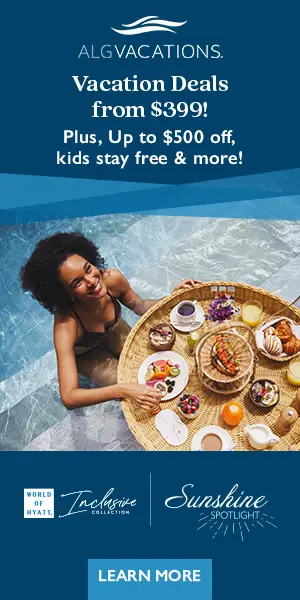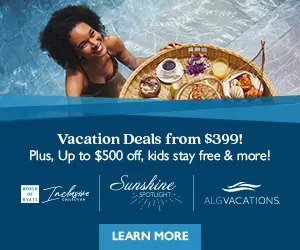How to Use Facebook Groups to Boost Your Travel Agency Business
by Richard D’Ambrosio
Travel agents are turning to Facebook Groups to build their business after recent changes on the platform. Photo: Ronnachai Palas/Shutterstock.com.
Travel agents have watched their Facebook engagement dip precipitously the last nine months as a new Facebook algorithm update deprioritized business posts for more “meaningful interactions” from family and friends.
Most small businesses are reporting that fewer than a half a percentage point of their total followers even see their posts in their newsfeeds, let alone engage with their content. As a result, what many successful travel agents are doing is developing Facebook Groups that they manage around topics and target audiences that can help them sell their travel services.
For example, one Central New Jersey travel agent uses a Facebook Group for expatriate Israelis living in the region to talk about everything Jewish in the New York Metro area. The group discusses the best kosher delis, which synagogues fit an individual’s personal faith, and how to navigate the myriad challenges of being an expatriate in America.
By building a group of like-minded individuals, and instilling trust as the group moderator/administrator, this agent is able to build a loyal tribe open to purchasing travel services from him.
With this successful strategy in mind, Travel Market Report offers the following six tips about how to develop a Facebook Group that can help your business in a variety of ways.
1. Set clear goals
Like any good marketing strategy, your foray into Facebook Groups should have goals. Are you looking to generate more qualified sales leads from a specific target market? Do you want to stay ahead of travel trends by having an online focus group? Are you looking to source ideas for new group travel opportunities? Or do you simply want to raise your agency’s brand awareness?
By having a clearly stated set of goals, you will be able to justify the time you put into your Facebook Group, and measure whether it is working for you. Write your goals down in a notebook, or even better yet, in a workbook like Microsoft Excel or Google Sheets. Your rows can be the goal, and the columns could be periods of time (e.g. weeks, months, quarters) where you input the number of group members that take an action that fits a goal.
Use the “SMART” goal-setting method so that you put some structure and accountability on yourself and can gain a sense of accomplishment as you progress. The SMART goal acronym means:
- Specific: Get down to the nitty gritty. “Increase sales” is not specific. “Increase premium cruise cabin sales leads by 25 percent” is specific.
- Measurable: Look for available metrics, like new group tours created or even sales leads.
- Attainable: Be realistic, but don’t be afraid to aspire to greatness with stretch goals.
- Relevant: If you have reviewed your agency’s P&L, and your Facebook Group goals reflect what you need to enhance your sales and profits, then it’s relevant.
- Timebound: This is one of the most difficult aspects of SMART goal-setting because it depends on so many variables. Most successful practitioners give themselves at least several months to build a large enough audience, and one that respects your expertise and trusts you. For others, it could be a year before you see specific goal results.
2. Targeted groups work best
While broad topics might seem to afford you the best opportunity to draw in hundreds, if not thousands, of new sales leads, the best Facebook Groups target a narrow niche of some kind.
For example, if you live in Cleveland, like to do business face-to-face with clients, and you are selling craft beer tours, your group might be something like “Northeast Ohio Craft Beer Lovers.” Targeting could include geography, age ranges, job descriptions, gender and more.
You can estimate your potential market for your group by building a mock ad from your Facebook business page. Facebook Ad Manager’s segmentation tools and filters will help you narrow your target down on target member attributes and tell you how many Facebook users fit your description.
3. Dedicate resources
Administering a Facebook Group, including monitoring for appropriate and relevant posts/comments, and engaging with members to build your relevance and expert leadership, will take time. Those time demands will increase as the group grows.
If you are a member of a host agency, are there peers you would be willing to work with to administer your group? If you are a host agency, is it possible to offer administrative rights to your independent contractors?
Could you work with an “industry expert” who isn’t a travel agent, who would be interested in being part of your group? In the Northeast Ohio Craft Beer Lovers example, maybe there is a local brewer who might want to partner with you, or a beer enthusiast friend who has the skills and expertise to engage with your group.
4. Engagement is key
Your members are joining your group to gain knowledge from experts and peers, and deepen their passion for a hobby or interest. If you try to overtly sell to your members, you likely will turn them off. They will either leave the group, or you will see a measurable fall-off in comments, likes, loves, etc.
What you want to do is offer topics for discussion, create an environment that promotes members freely asking questions and sharing their expertise and opinions, and to share news about your hobby or interest that you find at other sources.
To get the conversation started, you might want to establish a day and time of the week where you will be regularly posting discussion topic starters. Brand that topic starter with something memorable, like “Friday Afternoon Happy Hour” for your craft beer group.
5. Be ready to take the group ‘offline’
As the size and engagement of your group increases, you might want to consider hosting a live event, to cement the bonds being created online and build trust in you. It’s hard to predict when your group will be ready for an offline gathering, but you can gauge interest through a group poll or post asking for interest.
Then, use the Facebook Event creator to post your event and pin it to the top of your group’s newsfeed. Give yourself enough time to promote the event repeatedly in advance. And be certain to take photos and video at the event to generate engagement with group members who cannot attend, and build a buzz for future offline events.
6. Patience is a virtue
Building trust takes time. You need to be in this for the long haul. If you have immediate sales needs, you might want to try email marketing, Facebook Ads, or other paid advertising tools to generate revenue more quickly. But, if your business is looking to gradually boost sales with a niche market, Facebook Groups could be a great asset.























